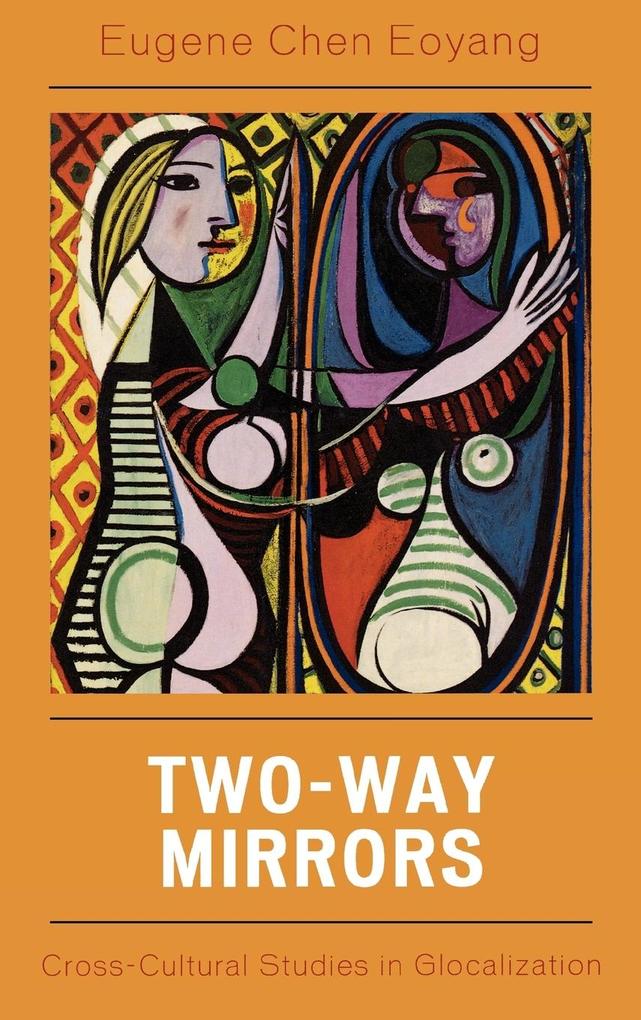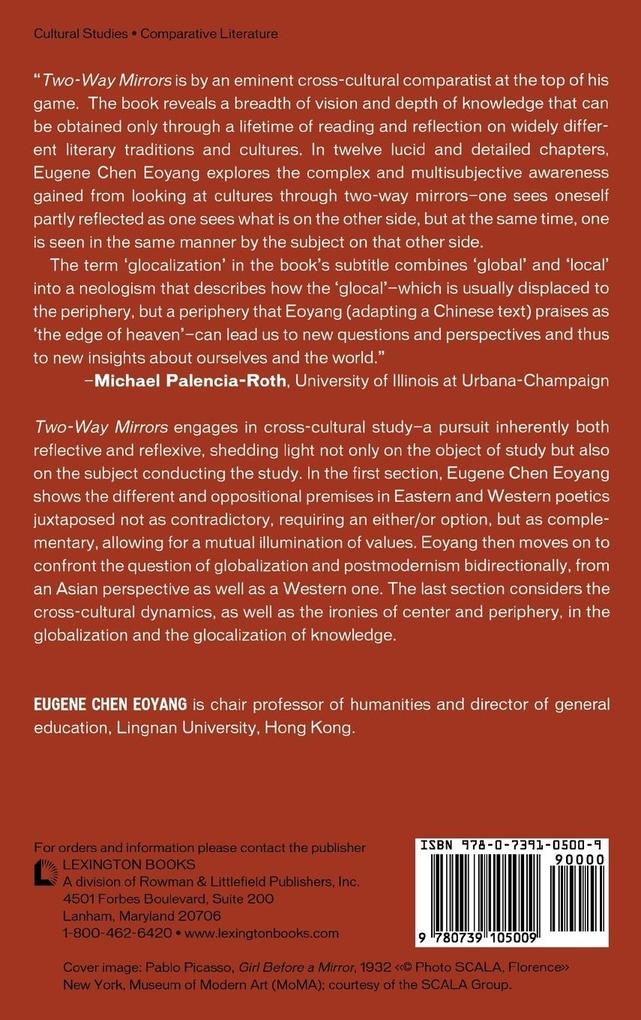Two-Way Mirrors engages in cross-cultural study-a pursuit inherently both reflective and reflexive, shedding light not only on the object of study but also on the subject conducting the study. The book's leading metaphor is that of the shop window, which is at once transparent (allowing a view of the merchandise on display) and reflective (offering an image of the prospective shopper). Eugene Eoyang confronts the topics of globalization, postmodernism, and the other as self, bi-directionally, from both an Asian and a Western perspective. He celebrates the continuing development of comparative literature, a discipline particularly well suited to cross-cultural exploration.
Inhaltsverzeichnis
Part 1 Polar Paradigms
Chapter 2 Thinking Comparatively: Orienting the West and Occidenting the East
Chapter 3 Canon Fodder: The Challenge of Non-Western Literatures
Chapter 4 Agon vs. Ritual: East-West Perspectives
Chapter 5 The Ethics and Aesthetics of Literature: A Comparative Perspective
Part 6 Post-modern Perspectives
Chapter 7 Being Familiar and Being Strange: The Subjective Experience of Globalization
Chapter 8 Post-Modernism and Traditional East Asian Literature
Chapter 9 The Modern and the Postmodern: A Cross-cultural Perspective
Chapter 10 The Advent of the Traditional Future: Global Imaginaries
Chapter 11 "History," "Herstory," "Theirstory," "Ourstory": Gender, Genre, and Cultural Bias in Accounts of East Asian Literature
Part 12 The Globalization/Glocalization of Knowledge
Chapter 13 The Globalization of Knowledge: Comparative Literature as Interdisciplinary and Multilingual Discourse
Chapter 14 The Glocalization of Knowledge: Tianya-The Ends of the Earth or the Edge of Heaven














